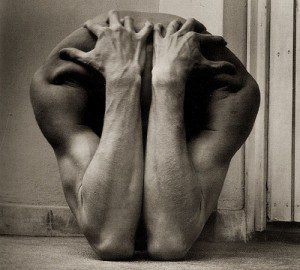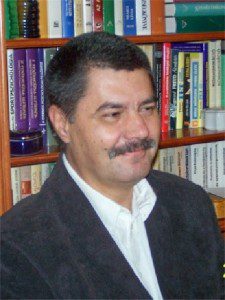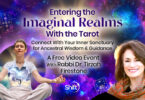 By Frank M. Wanderer Ph.D
By Frank M. Wanderer Ph.D
Guest Writer for Wake Up World
In Eckhart Tolle’s opinion, emotion is the body’s reaction to a certain idea, to the mental interpretation of a specific or imaginary situation. The ideas generating emotional reactions are often pre-verbal, that is, they remain unspoken or even unconscious, and they often appear in early childhood. These unconscious assumptions generate emotional responses in the body, and these emotions will in turn generate further thoughts or actions. A negative emotion is one that is poisonous for the body, it upturns the balance and harmonic functions of the body. The carrier of the negative emotions within the individual is the Pain-Body.
By ‘Pain-Body’, Tolle means emotional pain. Apprehension, hatred, self-pity, remorse, rage, depression, envy etc. are all manifestations of the Pain-Body. All emotional pains suffered by the individual during their life, remain a part of the unconscious of the individual for the rest of their life. All negative emotions, emotional suffering that the individual refuses to face, leave a mark in their unconscious. It is particularly difficult to face with, and to treat powerful negative emotions in childhood. Such unprocessed emotional pains constitute the foundations of Pain-Body. In the collective unconscious, every individual carries their own share of collective human pain that also belongs to the Pain-Body.
Would you like to get to know the nature, structure and dynamics of your Pain-Body?
[pro_ad_display_adzone id=”110028″]
Ego and the Pain-Body
The emotional component of the Ego is constituted by the unprocessed emotions concentrated in the Pain-Body. They occupy human mind. Pain is inseparable from the Ego identified with the mind.
Ego means the conventional, ordinary ”self,” which constitutes the common mistake in which the illusory belief in the personal identity is rooted. This illusory self will then be the basis of all mental processes, human relations and the interpretation of reality. The structure of the ego is an unconscious factor, which forces the individual to reinforce his/her identity by joining an external object. The content of the ego will then be the thing with which the individual identified him/herself (my house, my car, my child, my intelligence, my opinion etc.).
The emotional components of Ego are different in every individual; they are larger in some people and smaller in others.
In most people, Pain-body has a dormant and an active state. Events that coincide with patterns of pain previously experienced by the individual may easily activate Pain-Body. An apparently insignificant event may active an old pain in the individual, retrieving thoughts and emotions caused by old pains that occurred several years previously. Physical or emotional abuse, loss, a sense of abandonment may activate Pain-body particularly easily.
Any enjoyment, emotionally high state also hides the potential of pain in it, and this pain may with time be manifested. Enjoyment may therefore be transformed into some form of pain.
Get to know your Pain-Body
If you’re ready to understand the nature, structure and dynamics of your Pain-Body, so that you may begin to heal it, all you have to do is to complete the following Pain-Body Quiz. The quiz is designed to help you to realize how your Pain-Body expresses itself, and how much control you have over your Pain-Body.
The Pain-Body Quiz is assembled according to the strict criteria of the development of a scientific research method. The results of the quiz represent the reality only, when you answer the items of the quiz honestly. I made this quiz as a scientific research method, and this is the abridged version.
Take the Pain-Body Quiz
Please, read all statements carefully and mark the alternative that best describes your emotions and behaviors by the number of each statement, according to the following criteria:
SCALE: 1= virtually never, 2=sometimes, 3= frequently, 4=almost always.
The Pain-Body Quiz:
- I become upset without any particular reason
- I harbour resentment against others
- I easily become angry
- I feel remorse
- I am impatient with others
- I become depressed or sad without any particular reason
- People make me nervous
- I am overcome by self-pity
- I am often overcome by my emotions
- I have negative ideas about myself
- I am envious of others
- I easily offend others
- Small, insignificant things trigger intensive emotions in me
- I am often overcome by my emotions unexpectedly
- I am unhappy
- I am able to control my emotions
- I am able to forget about old offences
- When I realize that an emotions overcomes me, I am able to consciously suppress it
- I am able to contemplate my emotions like an outsider
- I do not identify with my emotions, I simply allow them to happen
- When I am suffering emotionally, I do not escape, I make efforts to consciously face the emotion concerned
- I am able to focus my attention on the present, instead of re-living old emotions
Don’t forget, the result of the quiz reflects reality only if the items of the quiz were honestly answered.
Evaluating the Pain-Body Quiz
You will find the evaluation of your Pain-Body Quiz HERE.
Your Pain-Body may have a lot of manifestation forms. With the Pain-Body Quiz, the Pain-Body Manifestation Scale can be defined, which shows the quality of our Pain-Body. The Pain-Body Control Scale informs us how much we are currently able to control the manifestation of our Pain-Body. The subscales of the Pain-Body Manifestation Scale (Exasperation, Grudge and Inflammability subscales) show the structure and quality of our Pain-Body, what feelings prevail, and what kind of dynamics those feelings have.
On the basis of the completed quiz and evaluation, how could you describe your Pain-Body?
Previous articles by Frank M. Wanderer:
- The Effortless Presence – Active Meditation vs. True Meditation
- The Unconscious Conditionings of the Mind
- Identity and The Online Personality
- Are You Awake? The Dimensions Of Alertness
- De-Conditioning the Conditioned Mind
About the author:
 Frank M. Wanderer, Ph.D is a professor of psychology, a consciousness researcher and writer, and publisher of several books on consciousness. With a lifelong interest in the mystery of human existence and the work of the human mind, Frank’s work is to help others wake up from identification with our personal history and the illusory world of the forms and shapes, and to find our identity in what he calls “the Miracle”, the mystery of the Consciousness.
Frank M. Wanderer, Ph.D is a professor of psychology, a consciousness researcher and writer, and publisher of several books on consciousness. With a lifelong interest in the mystery of human existence and the work of the human mind, Frank’s work is to help others wake up from identification with our personal history and the illusory world of the forms and shapes, and to find our identity in what he calls “the Miracle”, the mystery of the Consciousness.
Connect with Frank at powerofconsciousness.blogspot.com
[pro_ad_display_adzone id=”110027″]






